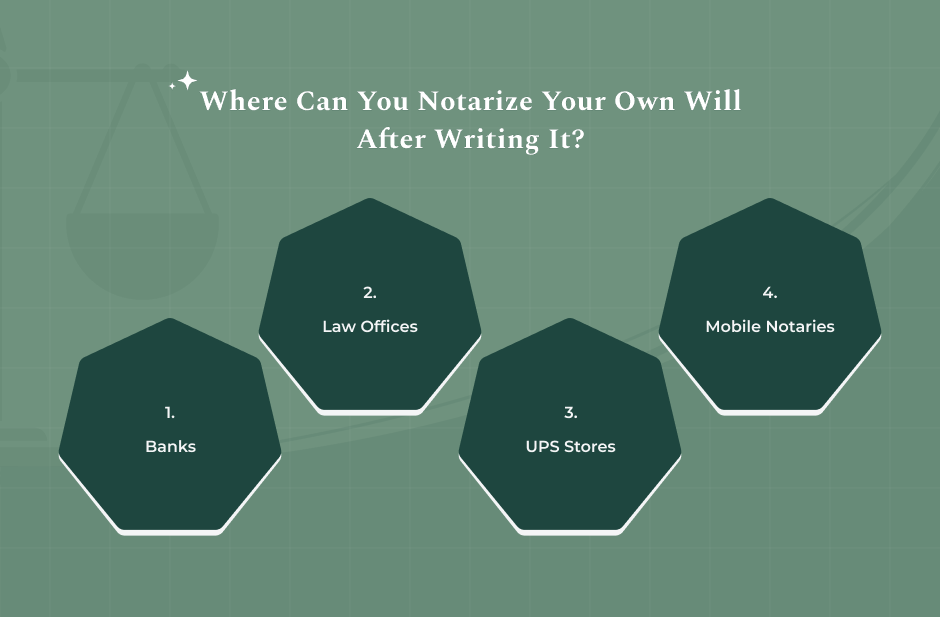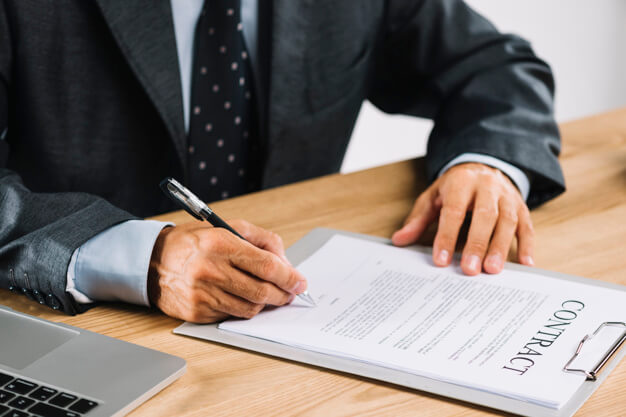Can I write my own will and have it notarized? That’s a question many people ask when thinking about what will happen to their things after they pass away.
A will is a legal document that tells everyone who should get your belongings, money, house, or anything else you own when you’re no longer here.
It’s important to have one, no matter how big or small your property is. Some people think you need a lawyer to write a will, but that’s not always true.
You can write it yourself. And if you want to make sure it’s official, you might want to get it notarized.
In this article, we’ll talk about what notarization means, whether it’s needed, and how you can write your own will the right way—even without a lawyer.
Does a Will Have to Be Notarized?
The short answer is no, a will does not always have to be notarized to be valid.
In most states in the U.S., a will is legal as long as it is written by someone of sound mind, which means you know what you’re doing.
Additionally, it has to be signed by that person and also signed by two witnesses. In other words, these witnesses must see you sign the will, and they must sign it too.
However, getting a will notarized can make the process smoother after your death. Let me explain what that means!
If your will is “self-proving,” which means it includes a notarized statement from you and your witnesses, the court will usually not ask your witnesses to come to court to confirm the will later.
So while notarization is not required, it can save your family time and trouble later.
Can I Write My Own Will and Have It Notarized?

Yes, you absolutely can write your own will and have it notarized. Many people choose to do this when they want to keep things simple or save money.
Writing your own will is called a “holographic will” in some places, especially if it’s handwritten. But it’s important to make sure it follows the rules of your state.
After writing your will, you can take an extra step and get it notarized. This means going to a notary public. And who are they?
Well, they are the ones who check that you are who you say you are and watch you sign your will. The notary then adds their seal and signs the will, making it more official.
Notarizing a will isn’t always required, but it’s like adding a safety stamp. It helps prove that your will is real and valid if there’s ever a question about it.
How to Make A Will Legal?
To make your will legal, you need to follow a few simple but important steps:
- Be Mentally Sound: You must be of sound mind when writing the will. This means you know what you own and who you want to give it to.
- Write It Clearly: Write down what you want to happen with your property. Be clear about who gets what. You can write your will by hand or type it.
- Sign It: You must sign the will at the end. This shows you approve of the content of the will.
- Witnesses: Most states require two adult witnesses to be present when you sign the will. They must also sign it. These witnesses should not be people who are getting anything from your will.
- Self-Proving Affidavit: If you want to make your will “self-proving,” you and your witnesses can sign a statement in front of a notary. This makes the will stronger in court.
Follow these steps and your will becomes a legal document that courts and family members will respect.
Where Can I Notarize My Will?
You can notarize your will at many places. A notary public is someone who is allowed by the state to watch people sign important papers and make sure everything is done fairly.
Here are some places where you can find a notary:
- Banks: Many banks offer notary services for free to their customers.
- Law Offices: Even if you’re not using a lawyer to write your will, many law offices have notaries who can help.
- UPS Stores or FedEx: These shipping stores often have a notary on staff.
- Libraries or City Halls: Some public libraries or local government offices have free or low-cost notary services.
- Mobile Notaries: If you can’t leave your home, you can search for a mobile notary. They come to your house for a small fee.
Oh! Also, make sure to bring a valid ID when you go to notarize your will. This is a non-negotiable!
Things to Know About Writing Your Own Will

Writing your own will can feel simple, but there are some things you need to remember:
- Be Specific: Don’t just say “I leave everything to my family.” Say exactly who gets what—like your car, jewelry, savings, or house.
- Choose a Guardian: If you have kids under 18, name someone you trust to take care of them.
- Pick an Executor: This is the person who will carry out the wishes in your will. Choose someone responsible and trustworthy.
- Keep It Updated: Life changes. If you get married, divorced, or have a new child, update your will.
- Store It Safely: Put your will in a safe place where someone you trust can find it when needed. Tell them where it is.
- State Laws Differ: Some states have different rules. For example, a handwritten will might be accepted in one state but not another. Always check your local laws.
Even though writing your own will is legal, getting legal advice can make it more secure.
Your Legal Guide: Understanding Notarization of Will
In conclusion, if you understand notarization, you can draft a well-defined will, wherever you are. Notarization is not a necessary condition for a will to be legally valid. The process of having the will notarized even makes it a lot easier for the survivors subsequently.
If you make a will, you authorize others to do what they want with your property. A will completed in accordance with the law is going to be enforceable. Furthermore, notarization is sort of an ultimate confidence card.
But even so, when you are in doubt or your estate is large, don’t hesitate to consult an attorney. For instance, there are several lawyers who offer really affordable help when it comes to drafting a will and notarizing it.
Ultimately, what you should keep in mind is very simple. It is basically the will that speaks when you are not around. And to commit it to words and to make it notarial is the source of tranquility for you and your family.
Read Also:
















